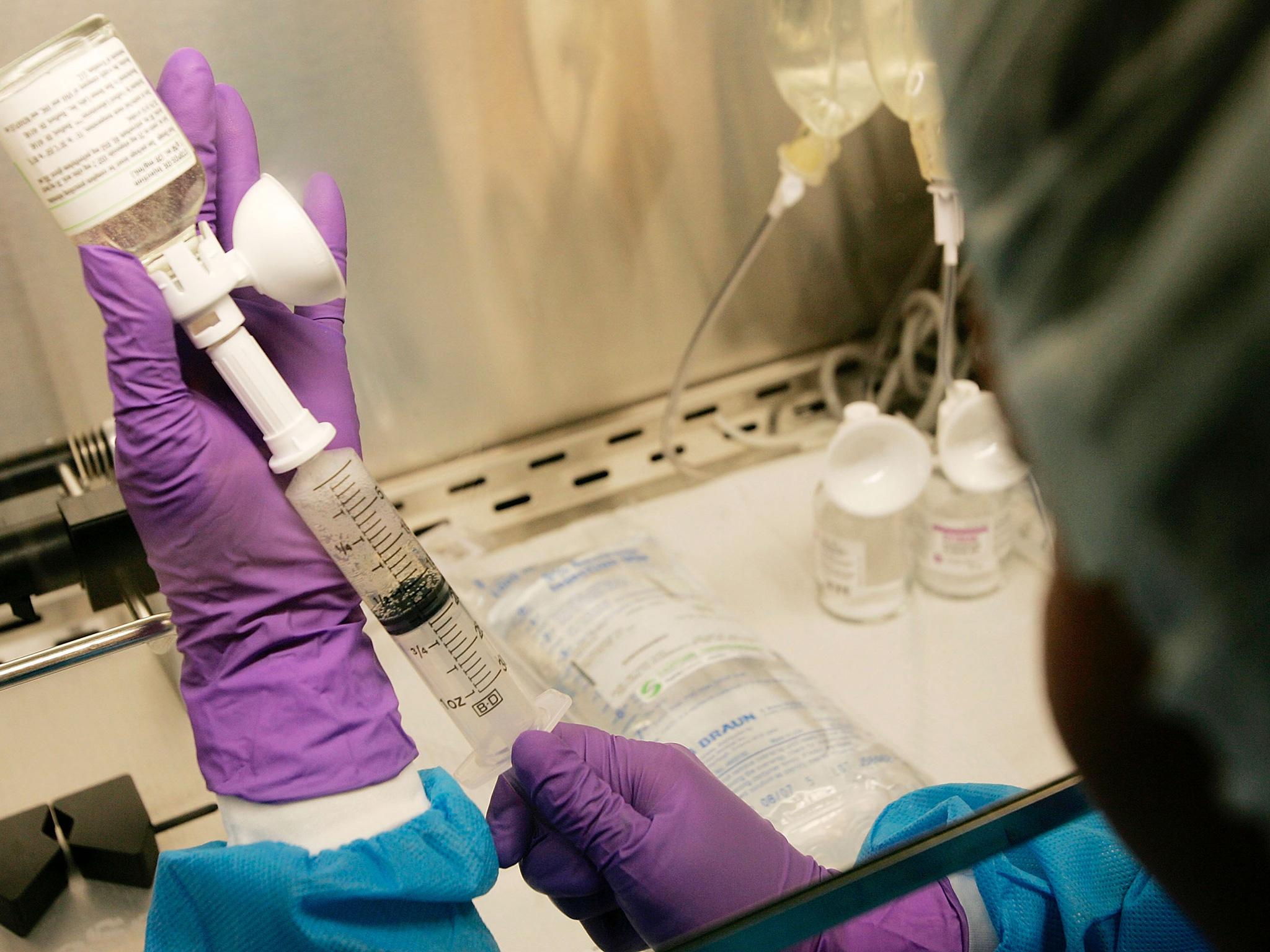Prototype test could dramatically boost chances of surviving pancreatic cancer
The form has one of cancer's highest mortality rates due to late diagnoses

Scientists are close to developing a blood test for the earliest stages of pancreatic cancer which could dramatically improve the chances of surviving one of the most lethal tumours.
The prototype test is still under development but the researchers believe it could be used to diagnose pancreatic cancer before it has spread widely within the pancreas or to other parts of the body.
Pancreatic cancer is only about the tenth most common cancer in Britain yet it has one of the highest mortality rates because many patients are diagnosed too late for effective surgery, scientists said.
A clinical trial on patients already diagnosed with pancreatic cancer has demonstrated that the blood test is 100 per cent accurate. Preliminary trials on another handful of patients with “precancerous lesions” suggest it could also detect earlier stages of the disease, the researchers said.
“Studies comparing stage of disease with outcome following surgery suggest that death rates for pancreatic cancer would be reduced if the disease were diagnosed at an earlier stage,” said Raghu Kalluri, chair of cancer biology at the University of Texas in Houston.
“This presents an unprecedented opportunity for informative early detection of pancreatic cancer and in designing potential curative surgical options,” said Dr Kalluri, who led the study published in the journal Nature.
The test is based on detecting small tissue droplets or “vesicles” in the bloodstream that have broken off from the surface of pancreatic tumour cells. These vesicles contain a protein called GPC1 that is found only in cancer cells.
A survey of about 250 patients showed that the blood test could detect pancreatic cancer “with absolute specificity and sensitivity” indicating no false positive or false negative results, Dr Kalluri said. The test could also distinguish between patients with chronic pancreatitis from those with early and late-stage pancreatic cancer, he said.
In addition, tests on blood samples that had been stored frozen for 30 years identified the presence of the pancreatic cancer vesicles in patients, indicating that the test is robust enough to be used on stored hospital tissues for research purposes.
At present it is only possible to diagnose someone with pancreatic cancer if they already suffer from the symptoms, or on the basis of routine hospital investigations – such as MRI or CT scans – which are expensive and time-consuming, scientists said.
Action Against Cancer postcards exhibition
Show all 15“Routine screening of the general population for pancreatic cancer using MRI’s or CTs would be prohibitively expensive with the likelihood for many false positives,” said David Piwnica-Worms, a lead author of the study at Texas University.
“Our study suggests the potential for [GPC1 protein] as a detection and monitoring tool for pancreatic cancer in combination with imaging, with an emphasis in its application in early detection,” Dr Piwnica-Worms said.
Clotilde Thery, a cancer specialist at the Curie Institute in Paris, who was not involved in the research, said the potential implications of such as test are huge. “It would allow clinicians to decide whether or not to perform potentially debilitating surgery,” said Dr Thery.
Professor Dorothy Bennett, head of the molecular cell sciences research centre at St George’s, University of London, said: “This study strongly suggests that a way to create a test for pancreatic cancer has been found in principle….[It] will need further funding from a company before a standardised and validated test can be routinely used in hospital labs. Overall, this would likely take a few years to develop.”
Alastair Watson, professor of translational medicine at the University of East Anglia (UEA), said: “A reliable blood test for pancreatic cancer is a holy grail in cancer medicine. Pancreatic cancers are usually diagnosed after when curative treatment is impossible. As a result most pancreatic cancers are fatal.”
Subscribe to Independent Premium to bookmark this article
Want to bookmark your favourite articles and stories to read or reference later? Start your Independent Premium subscription today.

Join our commenting forum
Join thought-provoking conversations, follow other Independent readers and see their replies